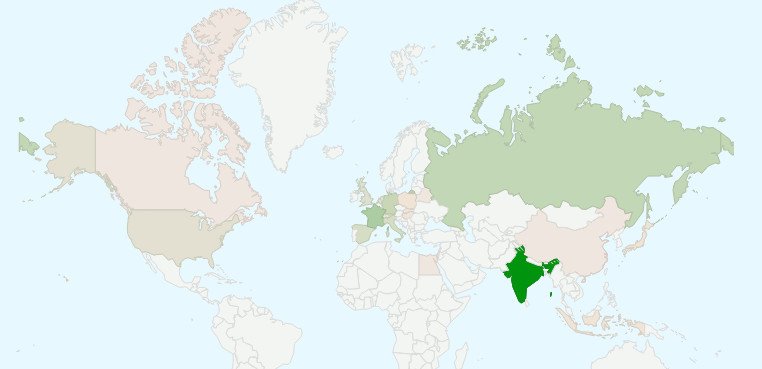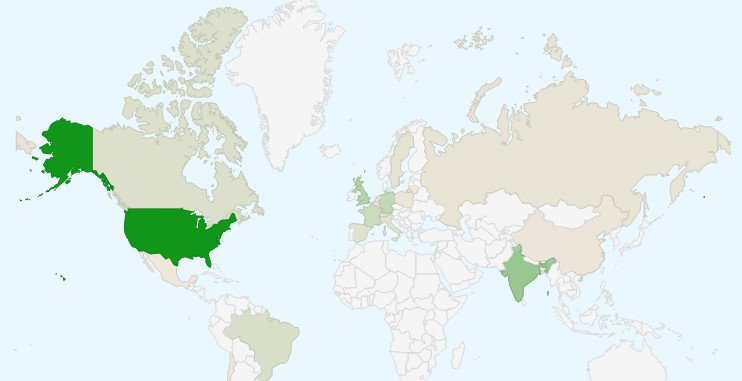I just wanted to write something as a follow up to my recent and provocatively titled Oracle ACE = Oracle’s Bitch? post. Obviously, that subject has been preying on my mind a little… I said before, it is hard to be objective about yourself, so maybe some aspects of the “being an Oracle ACE changes you” debate may be true. It would be wrong of me to deny that outright, but I think there are some indirect consequences of being an ACE that might alter my opinions about things, so I thought I would share my thoughts…
Access to Information
I don’t want this to sound patronising, but there are a lot of people out there spouting rubbish about things that happen in the tech industry with no knowledge of the history or actual decision processes that lead up to the final result. If you don’t know what is actually going on, it is easy to come to the wrong conclusion. Let’s use Oracle Linux as an example.
When Oracle Linux was announced it seemed like the whole internet was full of people saying, “Poor Red Hat. Oracle is trying to kill them!”. If you had spoken to people in the Oracle Linux team you would know that Oracle was incredibly frustrated with how long it was taking Red Hat to get performance improvements through to the kernel because of the way they manage their long term support of versions. Apart from critical updates, many major performance features will not be added into the kernel until the next major release. This was exactly what was happening with RHEL5. There were a whole host of performance improvements in the mainline Linux kernel, that had not been added to the RHEL5 kernel, but would be in the RHEL6 kernel. The problem was RHEL6 was *massively* delayed. That delay meant the performance of Oracle on Linux was essentially being crippled by Red Hat’s release cycles. Add to that other features like InfiniBand support that were being held back and you start to see the problem.
One option was for Oracle to make a binary clone of RHEL (like CentOS, Scientific Linux etc.) and give the option of their own kernel (UEK) that was closer to the mainline Linux kernel and therefore included all the latest performance stuff, without having to wait for Red Hat to get their ass in gear. That is what Oracle did with Oracle Linux. We had the performance of RHEL6, but we were still effectively using RHEL5. What’s more, by breaking this dependency between the distro version and the kernel version, the incentive to upgrade from RHEL5 to RHEL6 to RHEL7 was broken. For the most part, Oracle servers use a minimal amount of the features in the full distro. Who cares what version of Firefox is on the database server? For some people, running OL5 + UEK is pretty much like running OL7, so why bother upgrading as long as you still have erata produced?
Most people out there had not spoken to the Oracle Linux team, so they were quite happily spouting the “Oracle are killing Red Hat” crap, without knowing the real motivation. When someone like me comes along and sings the praises of Oracle Linux and actively defends Oracle’s position, I sound like a kiss ass, but really I’m just standing up for what I believe to be right.
Caveats: The arguments I was told could have been fiction used to influence me, but I was there through much of the process and have a lot of respect for the people involved, so a choose to believe them!
Why that long explanation? If I had not been in the ACE program, I personally would never have had that contact with the people in the Oracle Linux team and I would have been one of those people saying Oracle were a bunch of bastards! Because of my involvement in the ACE program, I got to see “behind the curtain” and chose a different path. So yes, being an Oracle ACE did change me!
I’ve used Oracle Linux as an example, but I could have used a whole bunch more!
Access to Support
We have all lived through Oracle Support nightmares. I’ve written several things in the past ranting about support. Since being part of the ACE program I’ve got to know a number of product managers (and in some cases developers) at Oracle, so when I have problems I can contact them directly and ask questions. In many cases, that significantly reduces the amount I actually have to interact with Oracle Support. If I know I will be working with product X, I actively seek out people in that field (ACEs and Oracle employees) and use that networking to my advantage. A case in point is the 12c JSON support. At Oracle OpenWorld I made a point of going to the demo grounds and speaking to Mark Drake about it. When I met up with David Peake I asked him some questions about what I was planning to do with APEX in 12c to get a second opinion. As long as you don’t bug these folks with stupid questions, they are usually willing to help.
If I had not been part of the ACE program, I would probably never have met these people and this sort of thing would not be possible for me *. That must have changed me, but I don’t think of it as incidious. I guess in this case I could say being an Oak Table member has changed me because of my access to people and information also…
Maybe you see change where there has been no change?
You hear those stories about people winning the lottery then losing all their friends, because their friends don’t want to be seen as “hangers on” so they avoid them. In some cases it is possible that the people who become ACEs haven’t changed, but your perception of them has. Before I became an ACE, if I said something supportive of Oracle you probably wouldn’t notice. If I say the same thing now I am a sell-out. 🙂 I can think of a couple of cases.
Grid Control/Cloud Control : I’ve used OEM in its various forms since 9i, where it was the Java-based console on top of the Management Server. Back then you couldn’t admit to using it in public or you would be ridiculed. You had to quickly close it down and open SQL*Plus if someone came in the room. Over the course of 10g and 11g Grid Control, then Cloud Control, became cool and everyone talks about it now. When I am presenting and I say things like, “I believe every DBA should use Cloud Control”, I mean it because I think it is true. The problem is I sound like a suck-up now. I’m just telling people what Oracle want me to say! Back in the 9i days when I was afraid to admit I used the 9i OEM Management Server I had credibility. 🙂
Certification : I’ve been doing certifications since Oracle 7. I started doing them to confirm to myself I really did know something about being a DBA. 🙂 Now it is all about my personal development. From time to time I have contact with Oracle Education about my views on certification. For a few years they interviewed me at OOW and so far have used about 5 seconds on the footage. Why? Because my views don’t line up with theirs. Just before OOW14 I was asked if I would write a post for the Oracle Certification Blog. I was willing to do one with a focus on personal development, but said I could not fall in line with the Oracle Education message. I don’t think that post will happen now, which is a pity. I think the people involved are a great group of people and I’ve met many of them for years at OOW, but we do have a difference of opinion where the value of certification is concerned. So now when I say I like certification (for my reasons) and I agree with Oracle’s new re-certification policy I am a drone that constantly spouts the Oracle message!
Conclusion
If you are looking for conspiracy you will find it, but it doesn’t mean it’s real!
I’m sorry this post has been so long, but I do care about what I do and I care about the ACE program. It’s been a big part of my life for the last 8 years. As you can tell, I’m a little butt-hurt about this subject, but I know that trying to defend yourself makes you look all the more guilty… 🙂
Sod it. It’s nearly the weekend, which means I get more time to play with Oracle…
Cheers
Tim…
* For clarification, I wasn’t suggesting I can only speak to these people because I’m an ACE. I meant that I (me personally) only came into contact with them in the first place because I’m an ACE.


 In a little less than a week I start the OTN APAC Tour. This is where I’m going to be…
In a little less than a week I start the OTN APAC Tour. This is where I’m going to be… Just a quick note to say the website will be out of action this evening for 3-4 hours.
Just a quick note to say the website will be out of action this evening for 3-4 hours.